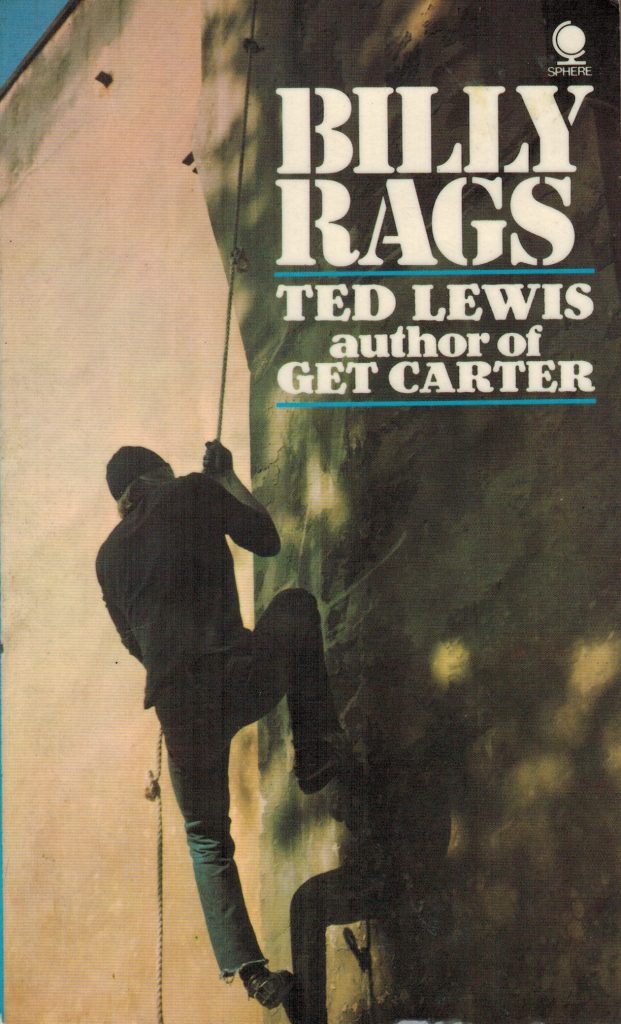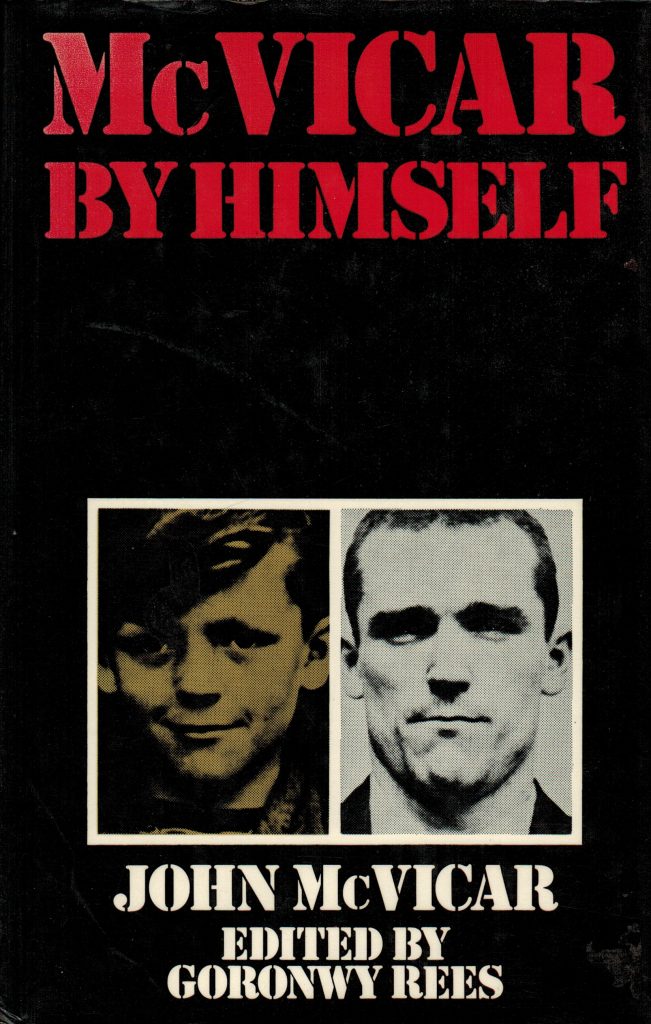Search
-
Recent Posts
- Dishing up Pulp Curry in a new way: why I am starting a Substack newsletter
- Book reviews: Deadly dames, midcentury Brit pulp and 1970s science fiction
- Mackenna’s Gold (1969): Gold, Ghosts and Frontier Violence
- Orphan Road book launch
- Orphan Road now available
- Pre-orders open for my new novel, Orphan Road
- Cover reveal: Orphan Road, my follow up to Gunshine State
- Breakfast in the Ruins podcast: New English Library Bikermania
- Why 1973 was the year Sidney Lumet took on police corruption
- Men’s Adventure Quarterly: Gang Girls issue
Categories
- 1960s American crime films
- 1970s American crime films
- 1980s American crime films
- 1990s American crime films
- Adrian McKinty
- Albert Dekker
- Andre De Toth
- Angela Savage
- Angie Dickinson
- Anthony Zerbe
- Asian noir
- Australian crime fiction
- Australian crime film
- Australian noir
- Australian popular culture
- Australian pulp fiction
- Australian television history
- Ava Gardner
- Beat culture
- Belmont Tower Books
- Ben Wheatley
- Billie Whitelaw
- Black pulp fiction
- Blaxsploitation
- Book cover design
- Book Reviews
- British crime cinema
- British pulp fiction
- Bryan Brown
- Burt Lancaster
- Carter Brown
- Charles Durning
- Charles Willeford
- Chester Himes
- Christopher G Moore
- Christopher Lee
- Cinema culture
- Claude Atkins
- Coronet Books
- Crawford Productions
- Crime Factory
- Crime Factory Publications
- Crime fiction
- Crime fiction and film from Africa
- Crime fiction and film from Cambodia
- Crime fiction and film from China
- Crime fiction and film from India
- Crime fiction and film from Indonesia
- Crime fiction and film from Japan
- Crime fiction and film from Laos
- Crime fiction and film from Latin and Central America
- Crime fiction and film from Malaysia
- Crime fiction and film from New Zealand
- Crime fiction and film from Scandinavia
- Crime fiction and film from Singapore
- Crime fiction and film from South Korea
- Crime fiction and film from Thailand
- Crime fiction and film from the Philippines
- Crime Fiction and film set in Vietnam
- Crime film
- Dangerous Visions and New Worlds Radical Science Fiction 1950 to 1985
- David Goodis
- David Peace
- David Whish-Wilson
- Derek Raymond
- Diana Dors
- Dirk Bogarde
- Don Siegel
- Don Winslow
- Donald Westlake aka Richard Stark
- Dystopian cinema
- Ernest Borgnine
- Eurocrime
- Fawcett Gold Medal Books
- Femme fatale
- Fernando Di Leo
- Filipino genre films
- Film Noir
- Forgotten Melbourne
- French cinema
- French crime fiction
- Garry Disher
- Gene Hackman
- George V Higgins
- Georges Simenon
- Ghost Money
- Giallo cinema
- Gil Brewer
- Girl Gangs, Biker Boys and Real Cool Cats: Pulp Fiction & Youth Culture, 1950-1980
- Gloria Grahame
- Gold Star Publications
- Gregory Peck
- Gunshine State
- Heist films
- Horror
- Horwitz Publications
- Humphrey Bogart
- Ian Fleming
- Interviews
- Ira Levin
- James Caan
- James Crumley
- James Ellroy
- James Hadley Chase
- James Woods
- Jim Brown
- Jim Thompson
- Joel Edgerton
- John Frankenheimer
- Joseph Losey
- Karen Black
- Kerry Greenwood
- Kinji Fukasaku
- Larry Kent
- Laura Elizabeth Woolett
- Lee Marvin
- Leigh Redhead
- Lindy Cameron
- M Emmet Walsh
- Mad Max
- Mafia
- Malla Nunn
- Martin Limon
- Megan Abbott
- Melbourne International Film Festival
- Melbourne Writers Festival
- Men's Adventure Magazines
- Michael Caine
- Michael Fassbender
- Mickey Spillane
- Monarch Books
- Ned Kelly Awards
- Neo Noir
- New English Library
- Newton Thornburg
- Noir Con
- Noir fiction
- Non-crime reviews
- Oren Moverman
- Orphan Road
- Ozsploitation
- Pan Books
- Parker
- Paul Newman
- Peter Boyle
- Peter Corris
- Peter Strickland
- Peter Yates
- Poliziotteschi
- Pulp fiction
- Pulp fiction in the 70s and 80s
- Pulp fiction set in Asia
- Pulp Friday
- Pulp paperback cover art
- Qui Xiaolong
- Raymond Chandler
- Richard Burton
- Richard Conte
- Robert Aldrich
- Robert Mitchum
- Robert Ryan
- Robert Stone
- Rock Hudson
- Roger Smith
- Rollerball
- Rosaleen Norton
- Roy Scheider
- Rural noir
- Sam Levene
- Sam Peckinpah
- Samuel Fuller
- Science fiction and fantasy
- Scripts Publications
- Sidney Lumet
- Sidney Poitier
- Simon Harvester
- Snowtown
- Snubnose Press
- Spies
- Stanley Baker
- Sterling Hayden
- Steve McQueen
- Sticking it the the Man Revolution and Counter Culture in Pulp and Popular Fiction 1950 1980
- Stuart Rosenberg
- Tandem Books
- Tart noir
- Tartan Noir
- Ted Lewis
- Toni Johnson Woods
- True crime
- Vicki Hendricks
- Victor Mature
- Vintage mug shots
- Vintage pulp paperback covers
- Wallace Stroby
- War film
- Westerns
- William Friedkin
- Woody Strode
- Yakuza films
- Yaphet Kotto
Nothing but noir
Recommended reading
The lurid world of pulp
- 20th century Danny Boy
- American Pulps
- Bear Alley
- Bloody, Spicy, Books
- Comics Down Under
- Everything second hand
- Existential Ennui
- Greenleaf Classic Books
- Irv O. Neil's Erotica is My Trade
- Killer Covers
- Lost Classics of Teen Lit 1939-1989
- Luminist Archives
- Men's Pulp Mags
- Mporcius Fiction Log
- Murder, Mayhem and Long Dogs
- Neglected Books
- Nocturnal Revelries
- Paperback Warrior
- Paperbacks of the Gods
- Pop Sensation
- Pulp artists
- Pulp Covers
- Pulp Crazy
- Pulp Flakes
- Pulp International
- Pulp Magazines Project
- Pulp Serenade
- Realms of the Night
- Romance Fiction Has a History
- Rough Edges
- Sin Street Sleaze
- Spy Guys and Gals
- The department of Afro American Research Arts & Culture
- The Dusty Bookcase
- The Haunted World of Richard Sala
- The Moon Lens
- The Nick Carter & Carter Brown Blog
- The Pulp & Paperback Fiction Reader
- Too Much Horror Fiction
- True Pulp Fiction
- Vault of Horror
- Vintage Nurse Romance Novels
- Vintage Romance Novels
- Welcome to the Pan Paperback
- Yellow and Creased
Support This Site
If you like what I do please support me on Ko-fi
Category Archives: Noir fiction
10 underappreciated American neo-noirs of the early 1970s
The domestic blowback of the Vietnam War. The sleaze and corruption of Watergate. The incipient rollback of the counterculture and many gains of the 1960s. Economic recession. The upheaval and uncertainty in the 1970s may have been tough on America’s collective psyche, but it resulted in some incredibly good crime cinema, particularly prior to Jaws in 1975, which helped to usher in the culture of the cinematic blockbuster.
And while I will happily admit to being a due paying member of the First-half-of-the-1970s-was-a-great-period-of-American-crime-cinema-fan-club, it does strike me that we tend to focus on the same handful of films from this period over and over. Yes, The French Connection and Shaft (1971), The Godfather (1972), The Friends of Eddie Coyle and The Long Goodbye (1973), and Chinatown (1974), are all masterful neo noirs that in some way enlarged the culture’s notion of what crime cinema could be.
But the wellspring of American neo noir on the screen in the first half of the decade runs very deep, and it pays major viewing dividends to explore it more widely. My latest piece for the US site CrimeReads looks at ten underappreciated neo noirs from the first half of the seventies that are worth your time. You can read the piece in full on the CrimeReads site via this link.… Read more
Posted in 1960s American crime films, 1970s American crime films, 1980s American crime films, Anthony Zerbe, Blaxsploitation, Cinema culture, Crime film, Heist films, John Frankenheimer, Neo Noir, Noir fiction, Paul Newman, Robert Stone, Stuart Rosenberg, Yaphet Kotto
Tagged 1970s American crime films, Busting (1974), Harry in Your Pocket (1973), Neo Noir, Report to the Commissioner (1975), Save the Tiger (1973), The Day of the Wolves (1971), The Laughing Policeman (1973), The Nickel Ride (1974), Top of the Heap (1972), Wanda (1970), WUSA (1970)
Spaces available in my online clinic for emerging crime writers
There are a few places remaining in the Writers Victoria online clinic that I am running for emerging crime writers in the second half of 2022, which starts next week.
If you’re keen to start a writing crime novel or short stories but you are unsure where to start, or if you are part-way through a manuscript and need help to finish or polish it, this online clinic will provide deadlines and support as you do so, pushing through blockages and problem passages. Participants will receive individualized feedback, including on structure, setting, pace, character and dialogue. This online course actively encourages sharing of your work with your cohort as well as with the tutor.
This is a completely safe space for you to submit drafts and have commented on by me, and/or to ask those burning questions you may have that you have never been able to get answered.
There is discount for members of Writers Victoria and other state writers organisations in Australia, but because the course is online you do not have to be in Melbourne – indeed, you don’t even have to be in Australia – to take part.
You can find all the information you need by going to this link at the Writers Victoria site here.… Read more
Mid-year reading report back: David Whish-Wilson, Simenon takes a train & 1970s Mexico noir
It already half-way through the year, and I thought a quick report on the highlights of my reading so far is in order. This is especially since I have a couple of big writing projects on the go and, as a result, will probably not have the time to do anything of the sort again before the end of the year.
So, let’s get to it.
The Sawdust House, David Whish-Wilson
Regular readers will have seen me talk before on this site about how much I rate David Whish-Wilson. I genuinely believe he is one of the most underrated crime writers working in Australia today and his latest does nothing to disabuse me of this view. The Sawdust House is Whish-Wilson’s second book to explore the lost Australian history of mid-19th century San Francisco. The Coves (2018) told the story of Australian criminals, many of them former convicts, who drifted to the San Francisco in the hopes of making a fortune amidst the gold rush gripping the west coast of the US at the time, and who assumed a major role in the lawless city’s criminal world. The Sawdust House focuses on the life of one of these men, Irish-born James ‘Yankee’ Sullivan, who has been arrested as part of the nativists attempt to root out and crush Australian criminal influence in San Francisco.… Read more
Posted in Book Reviews, Crime fiction, David Whish-Wilson, Derek Raymond, Georges Simenon, Laura Elizabeth Woolett, Neo Noir, Noir fiction, Ted Lewis
Tagged Beautiful Revolutionary, David Whish-Wilson, Derek Raymond, Georges Simenon, He Died with His Eyes Open, How the Dead Live, Laura Elizabeth Woollett, Once Upon a Time In Hollywood, Quentin Tarantino, Silvia Moreno-Garcia, Ted Lewis, The Love of a Bad Man, The Newcomer, The Sawdust House, The Snow Was Dirty, The Train, Velvet was the Night
Horwitz Publications, Pulp Fiction & the Rise of the Australian Paperback
I know that this site has not been getting quite as much attention from me as usual over the last year. This is largely because I have been so busy with various book projects. A quick update on these might be in order.
First up is my academic monograph, Horwitz Publications, Pulp Fiction & the Rise of the Australian Paperback. Out via the Anthem Press Studies in Australian Literature and Culture series in early July, it now has a cover and is available for pre-order. It is in hardcover, with a price that reflects the fact that it is being targeted at institutions and, in particular, libraries, in the first instance, but I have negotiated with Anthem for a much cheaper paperback version of the book will be released by Anthem next year.
Horwitz Publications, Pulp Fiction & the Rise of the Australian Paperback originated in a PhD I took at Sydney’s Macquarie University and turning it into a monograph has taken a considerable amount of my time over the last year. Regular readers will no doubt be familiar with Horwitz, as the publisher of many of the paperback covers that I post on this site. My study is the first book length examination of Australian pulp and one of the few detailed studies I am aware of a specific pulp publisher to appear anywhere.… Read more
Posted in Australian crime fiction, Australian popular culture, Australian pulp fiction, Australian television history, Book cover design, British pulp fiction, Carter Brown, Crime fiction, Dangerous Visions and New Worlds Radical Science Fiction 1950 to 1985, Fawcett Gold Medal Books, Girl Gangs, Biker Boys and Real Cool Cats: Pulp Fiction & Youth Culture, 1950-1980, Gold Star Publications, Horwitz Publications, Men's Adventure Magazines, Mickey Spillane, Noir fiction, Pan Books, Pulp fiction, Pulp fiction in the 70s and 80s, Pulp fiction set in Asia, Pulp paperback cover art, Science fiction and fantasy, Scripts Publications, Sticking it the the Man Revolution and Counter Culture in Pulp and Popular Fiction 1950 1980, True crime, Vintage pulp paperback covers
Tagged Anthem Press, Australian pulp fiction, Dangerous Visions and New Worlds Radical Science Fiction 1950 to 1980, Down and Out Books, Girl Gangs Biker Boys and Real Cool Cats: Pulp Fiction and Youth Culture 1950 to 1980, Gunshine State, Horwitz Publication Pulp Fiction and the Rise of the Australian Paperback, Horwitz Publications, Orphan Road, PM Press, Sticking it to the Man: Revolution and Counterculture in Pulp and Popular Fiction 1950-1980
The mystery of Billy Rags
Crime fiction is just far too large a literary field to aspire to anything near being a completist in terms of reviewing. That said, the British noir author Ted Lewis has been something of a favourite on this site. I reviewed Jack’s Return Home aka Get Carter (1970) and its two sequels, as well as the novels Plender (1971) and GBH (1980). But there is one more Lewis work I want to tackle, Billy Rags, originally published in in 1973 and which, coincidentally has just been re-released by No Exit Press in the UK.
Billy Rags is very closely based on the life of the real British criminal John McVicar. Just how closely I’ll get to directly. McVicar was an armed robber, declared ‘public enemy no 1’ by Scotland Yard in the 1960s, until he was apprehended and given a 23-year sentence. He was also a serial escapee and after his final arrest in 1970 received a 26-year sentence but was paroled eight years later. McVicar was also something of a uniquely 1960s/70s phenomena, the self-aware/educated working class career criminal turned author and commentator on prison reform, a major social debate in those two decades. He studied for a university postgraduate, wrote an autobiography, McVicar by Himself, published in 1974, and authored a couple of other true crime books.… Read more
Posted in Book Reviews, British crime cinema, British pulp fiction, Crime fiction, Crime film, Neo Noir, Noir fiction, Ted Lewis, True crime
Tagged Billy Rags, Charlie Richardson, GBH, Get Carter (1971), Getting Carter: Ted Lewis and the Birth of Brit Noir, Goronwy rees, Jack's Return Home, John McVicar, Mark Chopper Read, McVicar (1980), McVicar by Himself, Nick Triplow, Plender, Roger Daltry, Sweeney 2 (1978), Ted Lewis, Tom Clegg

























